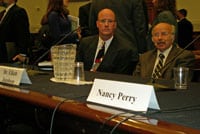H.R. 2811 is bad science no matter how you look at it.
|
Click image to enlarge |
This is a wake up call for the Reptile Nation. The Humane Society of the United States (HSUS) is lobbying hard in the U.S. House of Representatives to destroy the reptile hobby and industry. They have a long held ideological position against the keeping of reptiles in captivity. Now they are trying to use the newly released and very controversial U.S. Geological Survey (USGS) report on “Nine Large Constricting Snakes” as a tool to add these animals to the Injurious Wildlife List of the Lacey Act. They are trying to legislate these animals onto the Lacey Act by using a bill in the U.S. House of Representatives known as H.R. 2811 aka “The Python Ban.” If the HSUS is successful in passing this bill it would be a felony to import, export or transport across state lines anything that is included in the bill. Please remember that this is not limited to pythons, but could include all four anaconda species and Boa constrictors. This would be a devastating blow to the Reptile Nation.
“Nine” Large Constricting Snakes
- Indian Python and Burmese Python (Python molurus)
- Northern African Python (Python sebae)
- Southern African Python (Python natalensis)
- Reticulated Python (Python reticulatus)
- Boa Constrictors (Boa constrictor)
- Green Anaconda (Eunectes murinus)
- Yellow Anaconda (Eunectes notaeus)
- Beni or Bolivian Anaconda (Eunectes beniensis)
- Deschauensee’s Anaconda (Eunectes deschauenseei)
This is a blatant attempt to pass legislation in lieu of good science. The USGS report is not peer reviewed science that could be published in a real scientific journal. It is a report that has gone through internal review, but subject to agency cultural bias and politics. The report is what is referred to as “gray literature.” The U.S. Fish & Wildlife Service (USFWS) actually commissioned the report by USGS and are in full support of the document. Leadership of the USFWS seem ready to abandon an evaluation of Boa, Python and Eunectes initiated by South Florida Water Management District in 2008 with a Notice of Inquiry necessary to adopt a rule change to the Lacey Act. The USFWS cites their lack of expertise and resources to evaluate this issue as reason to recommend that H.R. 2811 be amended to reflect the USGS report conclusions. The United States Association of Reptile Keepers’ (USARK) scientists are of the opinion that the USFWS evaluation be allowed to reach conclusion and the USGS report is fundamentally flawed and shouldn’t be used as justification for legislating the Lacey Act. We can not allow science and good policy to be sacrificed for political expedience.
The only way to fight powerful special interests like the HSUS is to unite into a powerful organization of our own. We have created the most powerful advocacy in the history of the herp community, but we need more help. Join USARK! Get on the mailing list. Donate money or time. Take action when we ask for it. Every person adds power to the Reptile Nation. With money and membership we are better able to get our message out to influence policy makers. You can HELP! If you value your herps you should do everything you can to strengthen the Reptile Nation. Tell your friends. Forward our newsletter alerts. Write your Congressman and Senators. With your help we can succeed together. Wake up now or we will not survive into the future.
Andrew Wyatt is the President of the United States Association of Reptile Keepers (USARK) and has been an avid herp enthusiast for more than 35 years. He has traveled the world and has had his animals featured in a number of television productions. For more information about USARK, click here .




